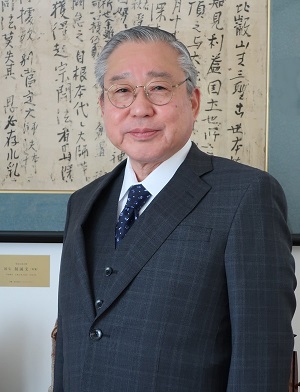
Invitation to Learn from the School of Letters
If human interactions nurture culture, then it can be said that various fields in the School of Letters are interactions themselves. It’s an education of analyzing “humans.” In a world that cannot be described simply by 0s and 1s, we gather information on tangible and intangible lives of people by exploring language-based sources, such as literature, linguistics, thoughts, and history, as well as others, such as the environment and artifacts. We research documents and conduct field work. Then, we read between the lines to consider the significance of our findings. The School of Letters fosters the power that will nourish you for your entire life.
When you enroll in Hiroshima University, we won’t simply welcome you as a student, but we will embrace you as our comrade in pursuit of the same study in the School of Letters. You will not be taught second-hand knowledge that someone has said in an academic world. However, you will be taught the result of what our faculty members have researched themselves and pondered over day in and day out. Furthermore, their strong passion and sincere diligence are also going to be a warm message for you. It is our desire for you to look at our faculty members and see what learning means in a university, the highest seat of education.
School of Letters is comprised of 6 courses and 16 specialized fields. Some are fields that you were not introduced to in your high school. So take many introductory courses open to first-year students and widen your field of interest. Our ability to create new ideas depends on the amount of diverse knowledge that we acquire and the size of curiosity that we possess. And when you go into the second year, as a general rule, select one of the specialized fields. By the end of the third year, you will have steadily cultivated specialized knowledge and skills in the chosen field through lectures, seminars, and practical training.
Classes are filled with elements that foster student initiatives. Questions are welcomed in lectures. You can present your research results in seminars and hold passionate discussions. Some practical training incorporate on-site field work. As you go through the process of learning, you will encounter many occasions where you will ask yourself “Is this really true?” University is not a place to study and learn. It is a place where you will learn to question. Gather information yourself and think about the topic with your own mind. If we’re to compare your study to sailing in a roaring open sea, I can confidently say that our faculty members in the School of Letters will be your best compass. And the person to steer that ship is you.
In your fourth year, you will compile the fruit of all that you have learned in the School of Letters by writing your graduation thesis. You may sometimes suffer from writer’s block. But just like the students that came before you, you will finally work out your dissertation that’s unique to you. While doing that, you will also face the pressure of going on a job hunt, preparing for civil service examinations, and taking care of other necessary matters, and the theme of the thesis that you chose will always be in the back of your mind. As a result, the overwhelming feeling of accomplishment that you’ll experience when you finally finish writing will also be yours to enjoy. Many of our former graduates went on to enroll in graduate schools to deepen their studies and to climb to higher ground. There’s no end to research themes. Sharpen your talent with us at the School of Letters in Hiroshima University. We’re waiting to hear your passionate inquiries.
—Noriaki Ajima, Dean


 Home
Home